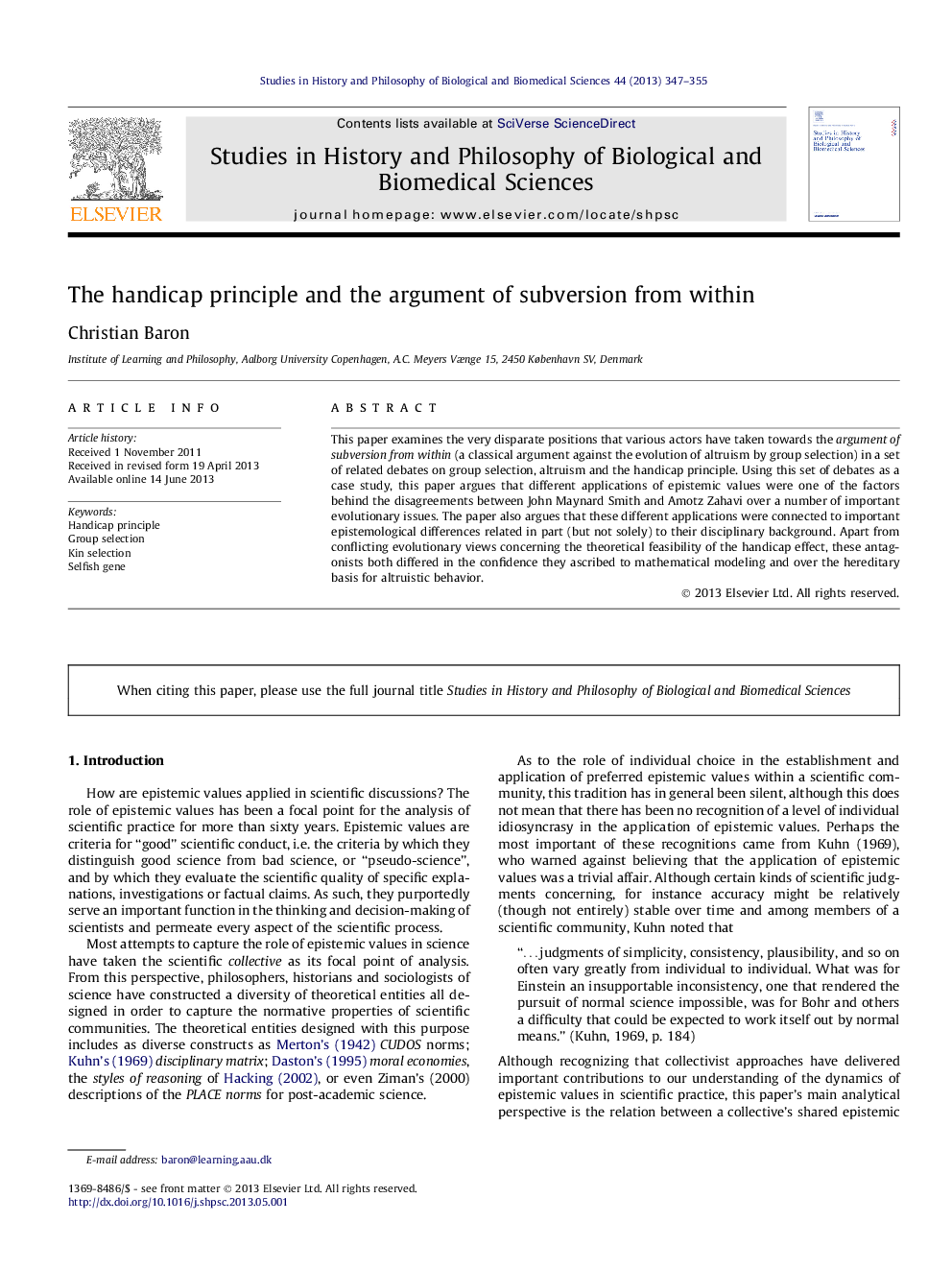| Article ID | Journal | Published Year | Pages | File Type |
|---|---|---|---|---|
| 1161764 | Studies in History and Philosophy of Science Part C: Studies in History and Philosophy of Biological and Biomedical Sciences | 2013 | 9 Pages |
•Behavioural ecology is dominated by a formal style of theorizing.•This tends to hide ontological commitments made by participants involved in controversy.•Debates on group selection and the handicap principle has been strongly affected by this.•The idiosyncrasies of individuals may play an important role in the shaping of controversies.
This paper examines the very disparate positions that various actors have taken towards the argument of subversion from within (a classical argument against the evolution of altruism by group selection) in a set of related debates on group selection, altruism and the handicap principle. Using this set of debates as a case study, this paper argues that different applications of epistemic values were one of the factors behind the disagreements between John Maynard Smith and Amotz Zahavi over a number of important evolutionary issues. The paper also argues that these different applications were connected to important epistemological differences related in part (but not solely) to their disciplinary background. Apart from conflicting evolutionary views concerning the theoretical feasibility of the handicap effect, these antagonists both differed in the confidence they ascribed to mathematical modeling and over the hereditary basis for altruistic behavior.
